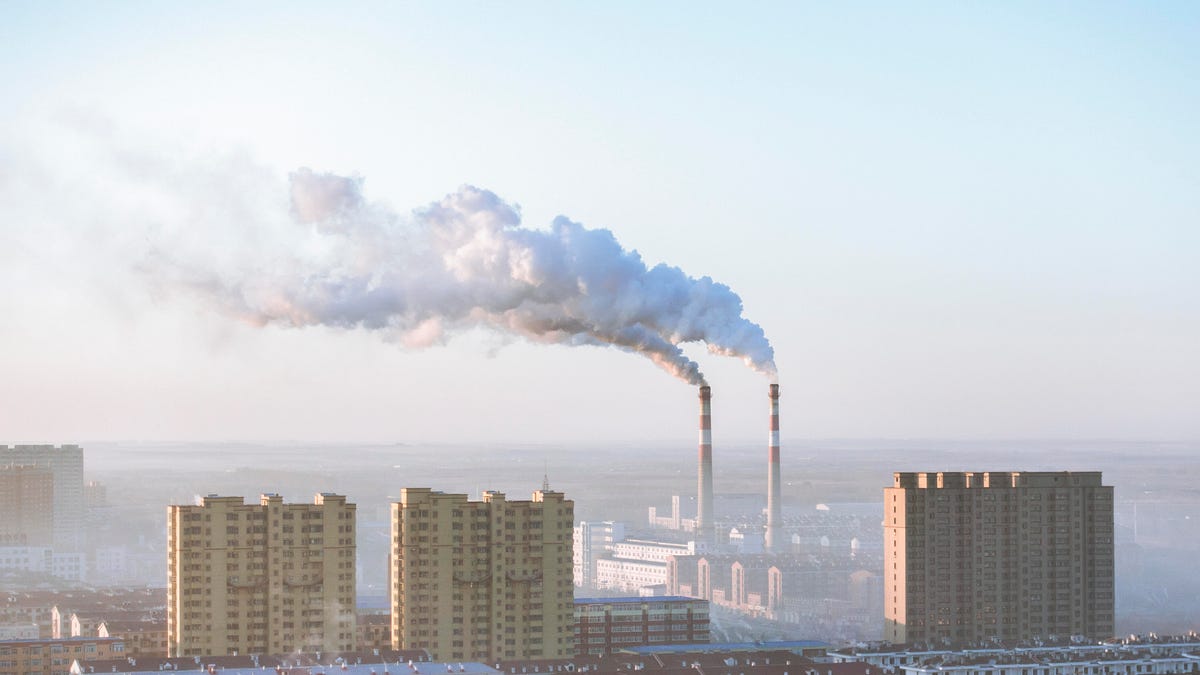Supreme Court Limits EPA's Power to Regulate Climate-Warming Carbon Dioxide
The US Environmental Protection Agency has lost a crucial tool for battling the climate crisis.

The EPA can't broadly regulate climate-warming carbon dioxide from power plants, the Supreme Court said.
In a 6-3 decision released Thursday, the Supreme Court said the US Environmental Protection Agency lacks the authority to broadly regulate carbon dioxide coming from power plants. Carbon dioxide and other greenhouse gases are warming the planet and driving the climate crisis. Drastic reductions in these emissions are needed by 2030 to avoid the worst effects of climate change, according to the United Nations.
The Supreme Court's ruling, in the case West Virginia vs. EPA, deals with the Clean Power Plan, a rule put forth by the Obama administration to regulate carbon dioxide at new and existing power plants. About 22% of the world's climate warming emissions come from burning fossil fuels for energy, according to the Center for Climate and Energy Solutions. The US has the highest emissions per capita in the world.
"Capping carbon dioxide emissions at a level that will force a nationwide transition away from the use of coal to generate electricity may be a sensible 'solution to the crisis of the day'" but the EPA overstepped its authority by trying to do so, conservative Chief Justice John Roberts wrote in the majority opinion. "A decision of such magnitude and consequence rests with Congress itself," he wrote.
The EPA called the decision "disheartening" but said it remains committed to protecting communities and reducing pollution.
"While I am deeply disappointed by the Supreme Court's decision, we are committed to using the full scope of EPA's authorities to protect communities and reduce the pollution that is driving climate change," said EPA Administrator Michael Regan in a statement released Thursday. "We will move forward to provide certainty and transparency for the energy sector, which will support the industry's ongoing efforts to grow our clean energy economy."
Congress has failed to take effective action on climate. President Joe Biden's proposed Build Back Better legislation, which included significant climate action, passed the House but died in the evenly divided Senate, with every Republican opposing it and Democratic Sen. Joe Manchin of West Virginia joining them. Biden has said he hopes to cut greenhouse gas emissions in half by 2050.
The Supreme Court vote fell along ideological lines, with conservative Justice Neil Gorsuch writing a concurring opinion and liberal Justice Elena Kagan writing the dissent.
"Today, the Court strips the Environmental Protection Agency of the power Congress gave it to respond to 'the most pressing environmental challenge of our time'," Kagan wrote. "Climate change's causes and dangers are no longer subject to serious doubt."
In 2021, the United States rejoined the Paris Agreement, which states that countries will limit global warming to 2 degrees Celsius above preindustrial levels and aim to hold warming to 1.5 degrees. The US isn't meeting its Paris Agreement obligations, according to reports.

